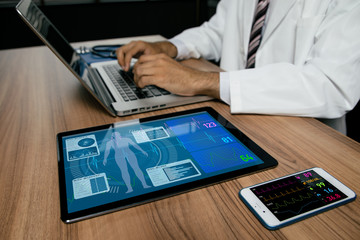
While Remote Patient monitoring has slowly been evolving in the field of Healthcare, it has brought forth countless ethical and social implications.
The most significant ethical implication to consider before discussing the integration of Remote patient monitoring is privacy and data security. As previously mentioned, one of the biggest concerns is patient data security and the privacy of any patients. All patient information is highly confidential, and if any security breaches put all patient data at risk of exposure, it can and will have a significant impact. Ensuring that patient data is securely stored is crucial to maintaining patient confidentiality.
Another ethical consideration is the barrier that RPM can set in Healthcare, which is limited to access. Remote Patient Monitoring could cause an imbalance if there are technology and internet connectivity issues between certain areas and populations. If we make equitable access to RPM services, avoiding worsening other healthcare inequalities is ethically essential.
Transitioning to an RPM system will be a significant change for patients, healthcare providers, and healthcare facilities. Analyzing positive and negative social impacts that might arise with the transition to RPM is essential. As mentioned, patient data is securely stored and encrypted because if not, it could lead to privacy concerns and data breaches, which can and will lead to serious ethical and social consequences. However, as a society, switching to RPM means leading to higher health outcomes and patient well-being.
A social implication to consider when discussing the integration of RPM is how healthcare services will be delivered and how some roles will change. Introducing RPM to the healthcare field will alter healthcare professionals' roles and responsibilities, which can lead to general changes in the healthcare workforce. Nurses and physicians must learn new and different ways to adapt to remote patient monitoring systems.
RPM also has the likelihood to change the relationship between patient and provider. While remote patient monitoring will elevate the communication between a patient and their care team, it can depersonalize that relationship. Going remote, especially in Healthcare, might dehumanize the relationship and trust between the two. Maintaining that trust and human connection is essential, especially regarding your health. That is why it is vital to have a healthy between both technological advancement and interpersonal aspects of care.
After discussing the benefits and ethical and social implications, it is essential to note that society through social media is a great way to promote RPM and the overall health of individuals. In a journal by Ricky Leung, he discusses how social media could benefit the spread of RPM. "Studies have shown that social media can be an efficient marketing tool to boost sales and revenue" (Leung, 2023). Social media is a great way to offer and promote health products that will benefit society.